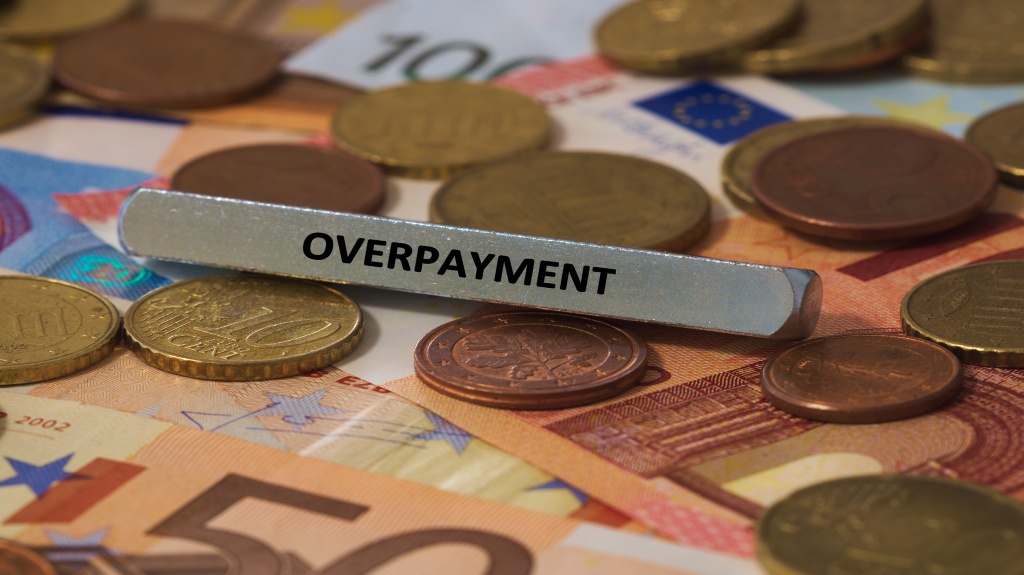When receiving VA benefits, it is common for veterans to overlook the exact amount received, as it tends to stay the same. Occasionally, a veteran may receive a VA overpayment notice. This is where the VA pays a veteran more benefits than they are supposed to receive and often occurs when there’s a change in eligibility or an adjustment in benefits that wasn’t accounted for. It’s important to address an overpayment as soon as possible. Ignoring an overpayment can lead to penalties, added interest, and potential financial hardship. In this blog, we will be covering the steps to take after receiving a VA overpayment to ensure that it is handled correctly.
Step 1: Understand the Overpayment Notice
An overpayment notice will appear in the mail and contain important information. It will typically include the amount owed, the reason for the overpayment, and when the amount will be due. It’s important to look over this notice carefully. Make sure all the information is accurate—mistakes do happen. There’s typically a 30-day window to respond, so don’t ignore it. Acting quickly can help you avoid any unnecessary complications.
Step 2: Confirm the Overpayment
In order to make sure that the overpayment isn’t a mistake, it is recommended to check the VA’s numbers with your records of the payments. It is possible that the VA made a mistake so it is important that you confirm an error was made with your payments. If you feel something is off, it’s a good idea to consult with a Veterans Service Officer (VSO) or get legal advice. Addressing any inconsistencies early can save a lot of trouble down the road.
Step 3: Contact the VA
If you believe the VA did not overpay you, you should reach out to them as soon as possible. You can ask for clarification, documentation, or a more detailed breakdown of the overpayment. Keep detailed records of every conversation and correspondence you have with the VA—these records can be crucial if you need to dispute their findings.
Step 4: Request a Waiver or Appeal
You have the right to seek assistance if this overpayment was an error or would cause financial strain on you to pay it. The first option is to request a waiver, which can remove or reduce the repayment if the debt wasn’t due to your error. Another path you can take is to file an appeal if you believe the overpayment is wrong. Be mindful of deadlines and forms; for example, VA Form 5655 is often needed when requesting a waiver.
Step 5: Set Up a Repayment Plan
If you have established that the overpayment was correct, but you will have a hard time paying it back, you may have the option to set up a repayment plan. The VA may allow you to negotiate a payment plan based on your circumstances. Options could include monthly payments, a single lump sum, or having the amount taken from your current benefits. Make sure to discuss any interest rates and clarify how the repayment terms will work for your situation.
Step 6: Consider Financial Hardship Options
You may be able to get the amount reduced if it will cause you financial hardship, you will need to prove this to the VA. In order to do this, you will need substantial proof of your situation, like bank statements or copies of monthly bills. A VSO can be a helpful resource in gathering and submitting the necessary paperwork to support your claim.
Step 7: Monitor Your VA Account
It is always a good idea to monitor your VA account or eBenefits portal regularly. Especially in situations like this, this will help you track your payments and confirm that everything is being applied correctly. Staying on top of your account can prevent this from happening in the future. If any questions or concerns arise in the future from monitoring your account, you can always reach out to a Veterans Service Officer.
Stay on Top of Your Benefits
Receiving a VA overpayment in the notice can be confusing and frustrating, as you may have not even noticed it occurred. It can also be an annoyance to have to repay the VA for a mistake they made, but it is very important not to ignore this notice. Taking care of a VA overpayment right away, whether it’s filing an appeal, waiver, or simply paying the amount, will ensure that you don’t receive any unnecessary penalties or financial hardships.
If you’re unsure about any part of the process, don’t hesitate to get help from a VSO, attorney, or VA-accredited representative. For those needing guidance with a VA overpayment, reach out to Coskrey Law today—professional support can make all the difference in navigating the steps ahead.


